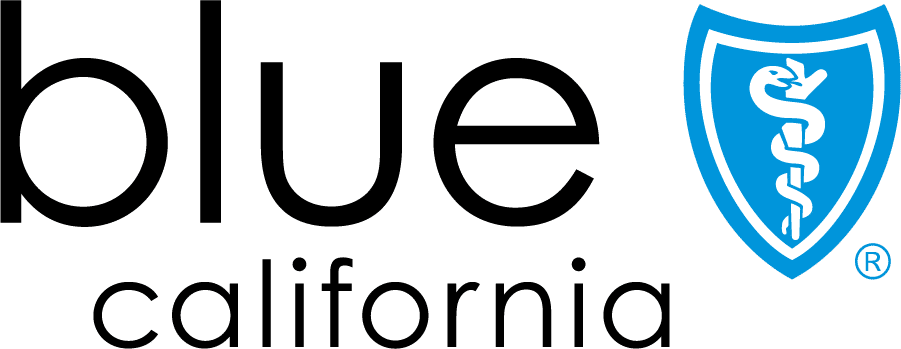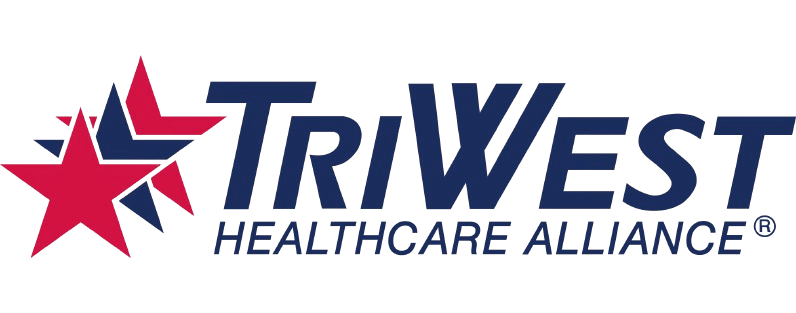
Union workers often face unique pressures on the job, from physically demanding tasks to long hours and unpredictable shifts. These stressors can contribute to both mental health challenges and, for some, substance use issues. In many industries where union work is common—such as construction, manufacturing, and transportation—the mental and physical demands can lead workers to feel they have limited options to cope with stress. This can create a cycle where mental health and substance abuse issues become intertwined, affecting both personal well-being and job performance.
Addressing substance abuse and mental health among union workers is essential not only for workplace safety and productivity but also for supporting a healthier, more resilient workforce. Employee Assistance Programs (EAPs) play a key role in providing confidential resources and support for workers facing these challenges. By connecting workers with the right services, EAPs help break down barriers to accessing treatment and create a path for union members to regain stability in both their personal and professional lives.
Union workers are often in roles that come with high levels of stress and physical demands. Many work long hours, operate in challenging or high-stakes environments, and manage responsibilities that can put a strain on both mental and physical health. These pressures can lead to burnout, anxiety, and depression, increasing the risk of substance use as a means of coping. For many, the job is not only physically taxing but also emotionally draining, which can make it difficult to prioritize mental health or seek support when needed.
In industries where unionized roles are common—such as construction, manufacturing, and transportation—workers frequently face hazards unique to their jobs. The physical demands alone can contribute to chronic pain or injury, which can lead to self-medication with drugs or alcohol. Long hours and irregular shifts are also common, making it hard for workers to maintain a consistent schedule for sleep, family life, or self-care.
Additionally, the pressure to perform safely and effectively under challenging conditions creates a constant need for focus and resilience, which can be difficult to sustain without support. Over time, these stressors can become overwhelming, leading some workers to turn to substances for relief.
Different industries present their own unique risks that can elevate both mental health challenges and the potential for substance use. For example:
Manufacturing: Repetitive tasks, machine operation, and shift work can contribute to physical injuries and mental fatigue, increasing the risk of alcohol or drug use.
Transportation: Extended time away from family, irregular schedules, and a solitary work environment can lead to feelings of isolation, depression, and burnout, making substance use a tempting coping mechanism.
Research shows that unionized workers in these high-risk industries are statistically more vulnerable to substance use and mental health disorders compared to other sectors. According to the Substance Abuse and Mental Health Services Administration (SAMHSA), workers in construction and extraction occupations have among the highest rates of heavy alcohol use and illicit drug use. Furthermore, a survey conducted by the National Institute for Occupational Safety and Health (NIOSH) found that the risk of depression and anxiety is elevated in these fields, impacting not only personal health but also workplace productivity and safety.
By recognizing the factors that make union workers particularly vulnerable, EAPs and union leadership can better understand the need for targeted support and resources.
Being aware of the signs of substance abuse and mental health issues is crucial for both EAP directors and union workers themselves. Identifying these warning signs early on can make a significant difference in connecting workers with the right support before problems escalate. While each individual’s experience is unique, there are common symptoms and behaviors that can indicate when a worker may be struggling and could benefit from intervention.
Substance abuse can manifest in various ways, often impacting both behavior and job performance. Some common signs to look for include:
Additionally, frequent references to needing a drink or other substances to cope may be a red flag.
Mental health issues can be less visible but still have a profound impact on a worker’s well-being and performance. Recognizing these signs can help prevent burnout, depression, and anxiety from worsening. Key red flags include:
EAP directors play a key role in identifying when intervention is needed and providing resources that can make a difference. If a worker’s performance or attendance issues have become persistent, it may be time for EAP directors to reach out confidentially to discuss available support options. Setting up regular check-ins with employees in high-stress roles can also create a proactive approach, allowing EAP staff to identify potential concerns early and provide resources before issues escalate.
For union workers, understanding personal signs of stress or substance use issues can empower them to take charge of their mental health. Here are some practical questions to reflect on:
Reminding workers that seeking help is a sign of strength, not weakness, can encourage them to reach out to EAPs, union representatives, or trusted colleagues. Addressing mental health and substance use challenges openly can help destigmatize these issues and lead to healthier, more supportive work environments.
Verify insurance coverage so you or your loved one can focus on the important part of the road to recovery. If you don’t see your insurance listed below, please give our team a call or submit an insurance verification form and someone on our team will get back to you.







Employee Assistance Programs (EAPs) serve as a valuable resource for union workers, providing a wide range of services to help address mental health and substance use challenges. With an understanding of the pressures unique to union roles, EAPs can offer specialized support tailored to workers’ needs, helping them to manage personal challenges while maintaining a safe and productive work environment.
EAPs typically offer a variety of services aimed at supporting workers’ overall well-being. These services often include:
By providing these resources, EAPs make it easier for workers to access comprehensive support, all of which can positively impact their mental health and quality of life.
One of the primary concerns for many union workers considering EAP services is confidentiality. EAPs are designed to protect employees’ privacy and confidentiality, ensuring that their participation remains private and does not impact their job security. EAP providers adhere to strict confidentiality guidelines, so no information about the employee’s participation is shared with employers without explicit consent. Addressing concerns about confidentiality upfront helps reassure union workers that they can seek the support they need without fearing any negative impact on their employment.
EAPs often work with providers to connect union workers to treatments that are especially relevant to the unique challenges they face. Commonly available treatments include:
By offering a diverse range of services, EAPs provide union workers with accessible and effective options to address their unique mental health and substance use challenges. For many workers, knowing that these resources are available—and confidential—can be a first step toward improving their health and quality of life.
Creating a supportive work environment where mental health and substance abuse are openly discussed can significantly impact the well-being of union workers. When stigma is reduced, workers are more likely to seek the help they need without fearing judgment or repercussions. Both union leaders and EAP directors play a key role in normalizing these conversations and fostering a culture of support that prioritizes mental wellness.
Mental health and substance abuse issues are often stigmatized, making it difficult for union workers to feel comfortable seeking help. By encouraging open discussions about these topics, union representatives and EAP directors can help to dismantle the barriers that prevent workers from accessing support. This includes sharing information on mental health resources, promoting the idea that seeking help is a sign of strength, and emphasizing that these challenges are common and manageable with the right support. When mental health and substance abuse are treated as part of overall worker well-being, it helps normalize the conversation and encourages workers to reach out without fear of judgment.
Union leaders and peers have a unique ability to create a culture where seeking help is not only accepted but encouraged. Union representatives can take proactive steps by:
By creating an environment where workers feel safe to seek help, union leaders play a direct role in fostering trust and openness around mental health and substance use.
EAP directors can contribute to a positive workplace culture by implementing programs and initiatives that make mental wellness a priority. Some ways to foster this culture include:
By making mental wellness resources readily available and visible, EAP directors can create a supportive, stigma-free culture that empowers union workers to seek help proactively. In a workplace where mental health is openly valued and supported, workers are more likely to feel respected, valued, and motivated to prioritize their well-being.
Common signs include behavioral changes, increased absenteeism, and dependency symptoms like impaired job performance.
Union workers can find EAP information through HR, their employee handbook, or by reaching out to a union representative.
EAPs offer counseling, addiction treatment referrals, and crisis support tailored to workers’ unique challenges.
Yes, EAP services are completely confidential, ensuring workers’ privacy and job security.
Leaders can openly discuss mental health, encourage peer support, and promote EAP resources to create a supportive environment.
For further questions or to discuss your needs, contact our team at Silver Lining Recovery!
Prioritizing mental health and substance use support within unionized environments is essential for fostering a safe, productive, and resilient workforce. Union workers face unique challenges, and having access to comprehensive support can make a profound difference in their personal and professional lives. By taking advantage of EAP resources, reaching out for help, and supporting each other, union members can help break down the stigma surrounding mental health and substance use issues. For EAP directors, strengthening support channels and promoting accessible, confidential services can create a workplace culture that values well-being. Together, union workers and EAP professionals can build an environment where everyone feels empowered to seek help without hesitation, leading to a healthier, more supportive workplace for all.
I’ve known the owner of Silver Lining Recovery now for almost 15 years. This center offers people the real opportunity to change their lives and recovery from drugs and alcohol. It’s one thing to go to detox, it’s another to continue the journey and make a lasting change in real life. They also offer a business professional tract that really works. Whenever I get a chance, I tell anyone I can to go to this center. It’s the real deal.

Fill out our health insurance verification form below to see if you qualify for coverage at Silver Lining Recovery. We will have someone contact you shortly to see if your coverage is accepted. For immediate help with your insurance verification process, call today.

At Silver Lining Recovery, we believe that treatment should be a partnership. That’s why we help clients from all walks of life find lasting recovery with a customized approach that’s tailored to their individual needs, preferences, and recovery goals.
Certified by the California State Department of Health Care Services Program
Number: 300161AP
Expiration Date: December 31, 2026
Copyright © 2025 Silver Lining Recovery | 16168 Beach Blvd #100, Huntington Beach, CA 92647 | Sitemap